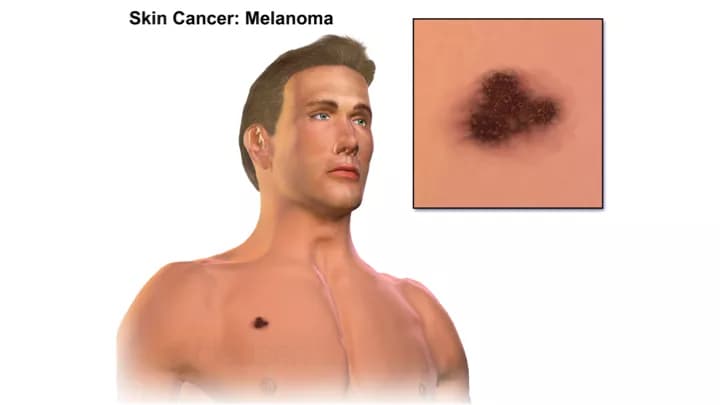
Importance Of Melanoma Prevention, Early Detection
On average, one person dies of melanoma, the deadliest form of skin cancer, every hour. Because this disease can affect anyone, everyone should take steps to reduce their risk and catch melanoma in its earliest stages, when it's most treatable.
New research presented at the American Academy of Dermatology's 2017 Annual Meeting in Orlando, Fla., emphasizes the importance of skin cancer prevention and detection. Researchers examined data collected from 118,085 individuals who received a free skin cancer screening through the AAD's SPOTme® program in 2009 and 2010, and approximately one-third of those surveyed indicated that they had recently observed a change in the size, shape or color of a mole -- one of the major warning signs of melanoma.
"This result is encouraging, because it shows us that patients are keeping an eye out for suspicious spots on their skin, and that they know to see a board-certified dermatologist to evaluate those spots," says board-certified dermatologist Hensin Tsao, MD, PhD, FAAD, a professor of dermatology at Harvard Medical School and one of the researchers who studied the SPOTme® data.
Melanoma is most treatable when detected early, so the AAD recommends performing regular skin self-exams to look for new or suspicious spots, and seeing a board-certified dermatologist to evaluate anything changing, itching or bleeding on the skin. Because unprotected exposure to ultraviolet light is the most preventable skin cancer risk factor, the AAD advises everyone to stay out of indoor tanning beds and protect themselves from the sun's harmful rays by seeking shade, wearing protective clothing and using a broad-spectrum, water-resistant sunscreen with an SPF of 30 or higher.
In compiling the SPOTme® survey data, researchers found that infrequent sunscreen use, high numbers of blistering childhood sunburns and chronic indoor tanning bed use were all associated with a recently changing mole. "These results indicate that although people know how to spot skin cancer, they aren't taking action to prevent this disease from developing in the first place," Dr. Tsao says. "While some individuals have a higher risk of developing melanoma than others, everyone increases their risk when they don't protect their skin from harmful UV rays."
The risk of developing melanoma is elevated among certain groups, including Caucasians, men over 50, people with a personal or family history of skin cancer, and those with many moles, atypical moles or large moles. Among the SPOTme® screening participants studied, however, the factors associated with a changing mole included not only a high mole count and a history of melanoma, but also being female and having skin of color.
"While Caucasian men over 50 are at greatest risk for developing melanoma, skin cancer can affect anyone, so prevention and detection should be a priority for everyone," Dr. Tsao says. "No matter your age, race or gender, it's important to avoid harmful UV exposure from the sun and indoor tanning beds, and to perform regular skin self-exams so you can detect this disease early, when it's most treatable.
"If you notice any new, unusual or changing spots on your skin, see a board-certified dermatologist. If you're in any of the groups that are predisposed to melanoma, including those with many moles and those with a family history of skin cancer, talk to your dermatologist about how often you should receive a skin exam."
The SPOTme® program aims to facilitate early detection by providing free skin cancer screenings for those who may not be able to see a dermatologist otherwise. "In evaluating the survey data, we observed that being uninsured was one of the factors most strongly associated with a changing mole," Dr. Tsao says. "This highlights the valuable service that the AAD provides with its SPOTme® program. For some patients, these free screenings can be life-saving."
Materials provided by American Academy of Dermatology. Note: Content may be edited for style and length.
Disclaimer: DoveMed is not responsible for the accuracy of the adapted version of news releases posted to DoveMed by contributing universities and institutions.
Related Articles
Test Your Knowledge
Asked by users
Related Centers
Related Specialties
Related Physicians
Related Procedures
Related Resources
Join DoveHubs
and connect with fellow professionals

0 Comments
Please log in to post a comment.